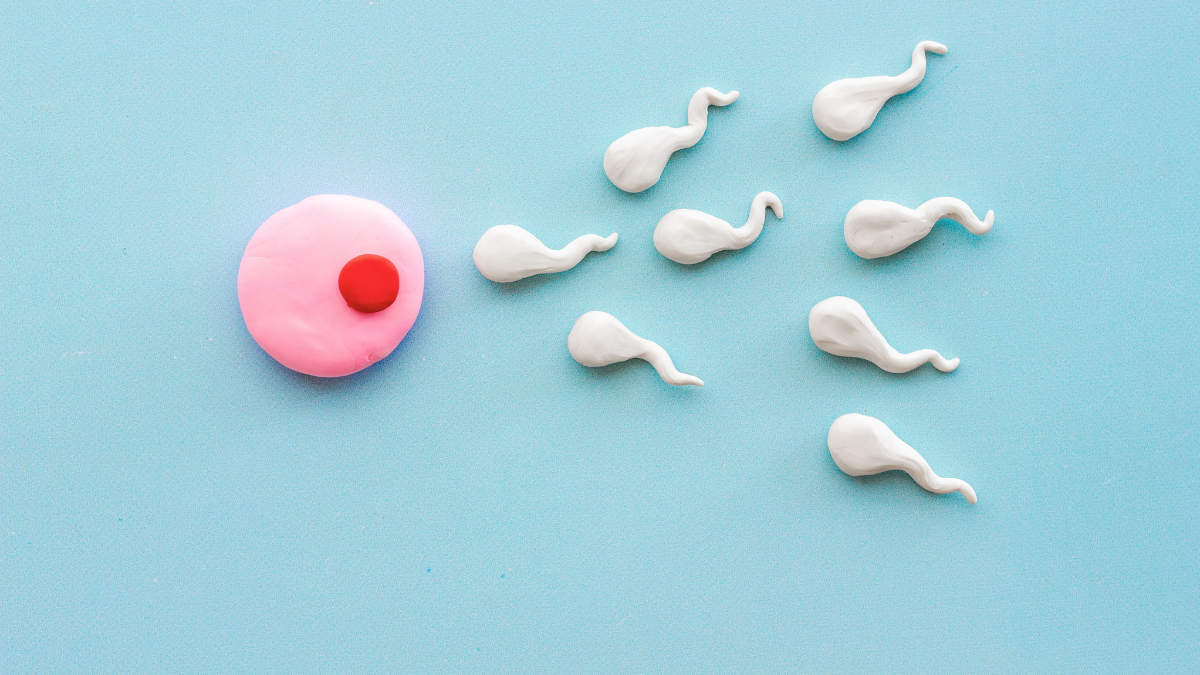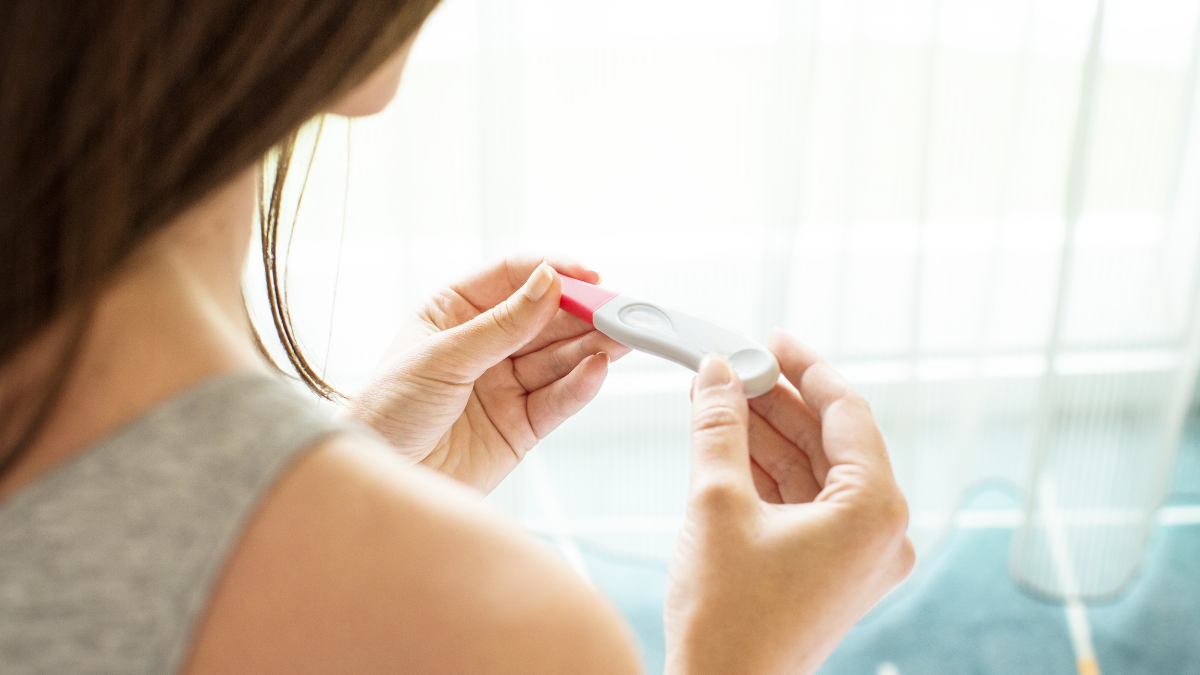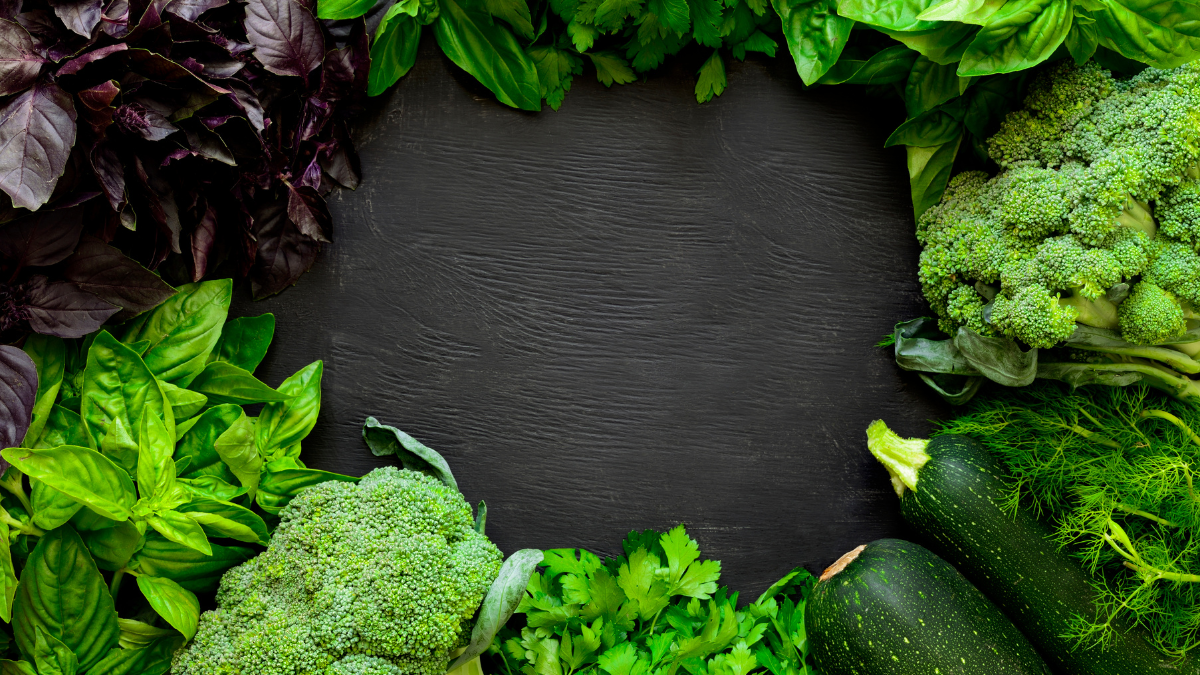Folic acid for pregnancy is one of the most important nutrients every expecting mom should know about. If you’re planning to get pregnant or already are, folic acid plays a powerful role in protecting your baby’s health from the very beginning. This B-vitamin, also known as vitamin B9, helps in forming the neural tube in early pregnancy.
That tube later develops into the baby’s brain and spinal cord. Without enough folic acid, there’s a higher risk of birth defects like spina bifida and anencephaly. But don’t worry — with the right diet and supplements, getting enough folic acid is completely doable.
What’s especially helpful is that folic acid for pregnancy isn’t just about preventing defects. It also boosts the mother’s red blood cell production, lowers the risk of preterm birth, and supports the baby’s DNA development. In this guide, you’ll learn why folic acid is essential, when and how to take it, which foods are rich in it, and the difference between folate and folic acid. By the end, you’ll feel confident and ready to include folic acid in your pregnancy journey.
Table of Contents
What Is Folic Acid?
Folic acid is the synthetic form of folate, a water-soluble B-vitamin (B9) that the body needs to grow and develop properly. Folate occurs naturally in foods like leafy greens, lentils, and oranges. However, folic acid is the version used in supplements and fortified foods because it’s more stable and easily absorbed by the body.
When it comes to pregnancy, folic acid helps form the neural tube in the early weeks, often before a woman even knows she’s pregnant. That’s why many health professionals recommend starting folic acid even before conception.
The body uses folic acid for vital cell functions, especially in creating and repairing DNA and producing red blood cells. For pregnant women, this means extra support for the rapidly growing fetus. The Centers for Disease Control and Prevention (CDC) recommends that all women of reproductive age get at least 400 micrograms (mcg) of folic acid daily.
This ensures the body has enough of the vitamin available if pregnancy occurs. Folic acid for pregnancy isn’t optional — it’s essential from day one, making it a critical part of prenatal care.

Why Is Folic Acid Important During Pregnancy?
Folic acid for pregnancy plays several vital roles that impact both the mother and baby. The most well-known benefit is that it prevents serious neural tube defects (NTDs) in the developing fetus. These defects affect the brain and spinal cord and usually occur within the first month of pregnancy.
Because many women don’t know they’re pregnant that early, taking folic acid beforehand gives the baby a healthy start. Conditions like spina bifida and anencephaly can be life-altering, so prevention is crucial.
Besides neural tube protection, folic acid for pregnancy supports the formation of the placenta and fetal DNA. It helps in producing new cells and preventing anemia in the mother. Some studies also show that folic acid reduces the risk of premature birth, low birth weight, and certain heart defects.
A folic acid-rich pregnancy helps boost energy levels in the mother, aids brain development in the fetus, and can even impact long-term cognitive health. Skipping this nutrient can leave both mom and baby vulnerable to preventable issues.
When Should You Start Taking Folic Acid for Pregnancy?
Before Pregnancy
If you’re trying to conceive, start taking folic acid at least one month before pregnancy. Many neural tube defects happen in the first 3–4 weeks of gestation, often before a missed period.
Health experts recommend that all women of reproductive age take 400 mcg of folic acid daily, just in case they become pregnant. It’s a simple habit that can have major benefits.
During Pregnancy
Once pregnancy is confirmed, the folic acid dose often increases to 600 mcg per day. Your doctor may recommend even more if you’ve had a previous pregnancy affected by NTDs or have other risk factors.
It’s important not to skip doses, especially in the first trimester, when the baby’s major organs are forming. After the first trimester, many women continue taking folic acid as part of their prenatal supplement throughout the pregnancy.
How Much Folic Acid Do You Need?
The right amount of folic acid for pregnancy depends on your health status and history. Here’s a general guide:
- Before conception: 400 mcg daily
- During pregnancy: 600 mcg daily
- While breastfeeding: 500 mcg daily
- High-risk women (history of NTDs): Up to 4,000 mcg daily (under medical supervision)
It’s important not to self-medicate or take excessive folic acid without your doctor’s advice. While folic acid is water-soluble and excess is usually excreted, very high doses over time might hide vitamin B12 deficiencies. For most women, prenatal vitamins with the right folic acid dosage are enough. Always check the label and consult your doctor before choosing a supplement.
Folic Acid vs. Folate: What’s the Difference?
Folate (Natural)
Folate is the natural form of vitamin B9 found in foods. It’s present in leafy greens, legumes, citrus fruits, eggs, and liver. The body must convert folate into its active form — L-methylfolate — before it can be used. People with certain gene mutations (like MTHFR) have trouble processing folate efficiently, which is why they may need methylated folate supplements instead.
Folic Acid (Synthetic)
Folic acid is the lab-made version of folate used in supplements and added to fortified foods like bread, rice, and cereal. It’s more stable during storage and cooking, and it’s usually more effective for preventing deficiencies. For most women, folic acid supplements are the easiest way to meet daily needs, especially during pregnancy. However, individuals with MTHFR mutations may need a different form of supplementation, so genetic testing can be useful if there are concerns.
9 Super Benefits of Folic Acid for Pregnancy
Folic acid for pregnancy offers a wide range of benefits for both mother and baby. Here are nine key reasons to make it a priority:
- Prevents Neural Tube Defects (NTDs): The most well-known benefit is its role in preventing serious birth defects like spina bifida and anencephaly.
- Supports Brain Development: Folic acid aids in forming the baby’s brain, reducing the risk of cognitive impairments later in life.
- Promotes Healthy Spine Growth: Proper folic acid levels help close the neural tube, ensuring a healthy spinal cord.
- Reduces Risk of Preterm Birth: Studies suggest folic acid lowers the chance of premature delivery.
- Supports Placenta Formation: Folic acid aids in building the placenta, the baby’s life-support system.
- Lowers Risk of Congenital Heart Defects: Heart abnormalities may be less likely when folic acid is taken before and during early pregnancy.
- Boosts Maternal Red Blood Cell Production: Prevents anemia by supporting healthy blood cell growth.
- Improves Baby’s Birth Weight: Linked to a lower risk of low birth weight and poor fetal growth.
- May Reduce Risk of Autism: Some research shows that early folic acid intake may reduce the risk of autism spectrum disorders.

These super benefits of folic acid for pregnancy show how critical it is not just for prevention, but for optimizing the baby’s overall health and development from the very start.
Impact of Folic Acid for Pregnancy on Daily Life
Incorporating folic acid into your daily routine can have a profound effect on your pregnancy journey. For many women, knowing they’re doing something powerful to support their baby’s development brings peace of mind. Taking a simple daily supplement becomes a habit of self-care—a small action with lifelong benefits.
Emotionally, it can reduce anxiety about possible complications, especially when taken as part of a comprehensive prenatal routine. Physically, maintaining adequate folic acid levels helps reduce fatigue and support energy, since it aids red blood cell production. It also helps regulate mood by supporting brain function, which is especially helpful during pregnancy when hormone levels fluctuate.
In the long run, babies born to mothers with good folic acid intake often have better birth outcomes, including stronger immune systems and healthy birth weights. Practicing this habit also inspires other healthy choices—like better eating habits, reduced alcohol intake, and quitting smoking—which ripple positively throughout your daily life.
How to Apply or Practice Folic Acid for Pregnancy
Here’s how to make sure you’re getting enough folic acid for pregnancy:
- Start Early: Begin taking folic acid at least 1 month before trying to conceive.
- Daily Supplement: Take a daily prenatal vitamin with at least 400 to 800 mcg of folic acid. Some women at higher risk may need up to 4 mg—consult your doctor.
- Eat Folate-Rich Foods: Incorporate leafy greens (like spinach), lentils, beans, oranges, avocados, and fortified cereals into your diet.
- Limit Alcohol and Smoking: These can interfere with folic acid absorption.
- Stay Consistent: Make it part of your morning or bedtime routine—consistency is key.
- Check Your Labels: Some multivitamins or fortified foods may already include folic acid.
- Talk to Your Doctor: If you have health conditions or are on medication, ask about your specific folic acid needs.
Practicing these habits doesn’t require a major lifestyle change, but the benefits are massive. With minimal effort, you’re actively helping your baby grow strong and healthy while protecting yourself from avoidable complications.
Best Food Sources of Folate
Eating a folate-rich diet is a great way to naturally support your body during pregnancy. Although supplements are essential, combining them with food boosts overall nutrition. Here are the top folate-rich foods to include:
- Spinach, kale, and romaine lettuce
- Lentils, chickpeas, black beans
- Oranges, strawberries, bananas
- Avocados and asparagus
- Broccoli, Brussels sprouts
- Fortified cereals, bread, and pasta
- Eggs and beef liver
These foods help ensure you’re getting a steady source of folate alongside your prenatal vitamin. For women who struggle with nausea in early pregnancy, smoothies with spinach and banana can be a gentle, nutrient-rich option. Remember, natural folate complements — but doesn’t replace — your folic acid for pregnancy.

Can You Take Too Much Folic Acid?
While folic acid for pregnancy is vital, it’s possible to overdo it, especially with high-dose supplements. Most prenatal vitamins contain between 400 and 800 mcg, which is safe for daily use. However, taking more than 1,000 mcg per day long-term without medical supervision isn’t recommended. Too much folic acid can mask signs of vitamin B12 deficiency, leading to nerve damage if undetected.
Also, taking very high doses without doctor approval might not bring added benefits and could lead to complications. Always follow the dosage your healthcare provider suggests. For high-risk cases, such as women with a previous NTD pregnancy, up to 4,000 mcg may be prescribed. But for most, sticking to the standard dose of folic acid for pregnancy is both effective and safe.
Who Needs More Folic Acid?
Certain groups of women may need more folic acid than the standard recommendation. These include:
- Women with a family history of neural tube defects
- Those with diabetes or epilepsy
- Women who are overweight or obese
- Smokers or those with alcohol use issues
- People with MTHFR gene mutations
- Women taking certain medications (like anti-seizure drugs)
If you fall into any of these categories, your doctor may recommend higher doses or special forms like L-methylfolate. It’s important to disclose your full medical history during prenatal visits so the right Folic Acid for Pregnancy plan can be customized for you. Personalized care ensures you and your baby get the best start possible.
Tips for Taking Folic Acid Effectively
Taking folic acid for pregnancy is simple, but here are a few helpful tips:
- Be consistent: Take it at the same time each day — morning with breakfast works for most.
- Pair it with food: Some women experience nausea with supplements. Taking it with food may help.
- Choose a high-quality prenatal vitamin: Look for one that includes folic acid or L-methylfolate.
- Store correctly: Keep supplements in a cool, dry place away from sunlight.
- Use reminders: Set a phone alarm or place your vitamin bottle where you’ll see it daily.
Sticking to a daily folic acid habit is one of the easiest ways to protect your baby’s health from the earliest stages of development.
Causes of Folic Acid Deficiency in Pregnancy
There are several reasons why a pregnant woman might lack enough folic acid. First, many pregnancies are unplanned, and women may not be taking supplements early enough to support fetal development. Second, certain health conditions like celiac disease or Crohn’s disease can interfere with folate absorption in the gut.
Poor dietary habits, especially low intake of leafy greens, citrus fruits, beans, and fortified grains, are another leading cause. Alcohol consumption and smoking can also reduce the body’s ability to absorb and utilize folate properly. Moreover, certain medications like anti-seizure drugs or methotrexate can block folate metabolism.
Conclusion
Folic acid for pregnancy is a simple but powerful tool in every expecting mother’s journey. It protects your baby from devastating neural tube defects, supports healthy development, and boosts your body’s ability to produce new cells and red blood cells.
Whether you’re planning to conceive, are already pregnant, or simply want to support your reproductive health, adding folic acid to your daily routine is a wise and responsible choice. Supplements, fortified foods, and folate-rich meals can all work together to help you meet your daily needs.
Being informed is key. Knowing how much to take, when to start, and what foods support folic acid intake empowers you to take control of your pregnancy wellness. Talk with your doctor about the best options for your body, especially if you have health concerns or risk factors.
With the right approach, folic acid for pregnancy becomes not just a supplement, but a symbol of proactive love for your baby’s future. Start today — your baby’s bright beginning starts with folic acid.
Frequently Asked Questions (FAQ)
Q1: What is folic acid for pregnancy in simple terms?
A: Folic acid for pregnancy is a form of vitamin B9 that helps develop your baby’s brain and spine. It prevents serious birth defects when taken before and during early pregnancy.
Q2: What causes folic acid deficiency during pregnancy?
A: Folic acid deficiency can happen due to poor diet, unplanned pregnancy, certain health conditions like celiac disease, or lifestyle habits like smoking and alcohol. Some medications can also interfere with absorption.
Q3: How can folic acid for pregnancy improve my life?
A: Folic acid for pregnancy gives your baby a healthy start by preventing birth defects, supports your energy levels, boosts red blood cell production, and improves emotional well-being during pregnancy.
Q4: Is folic acid for pregnancy scientifically proven to work?
A: Yes, decades of research confirm that folic acid for pregnancy significantly lowers the risk of neural tube defects and supports healthy fetal development.
Q5: How long does it take to see results from folic acid for pregnancy?
A: Folic acid starts working immediately in your body, but the most protective benefits occur when you take it at least one month before conception and continue through early pregnancy.
Q6: Can anyone take folic acid for pregnancy, or is it only for certain people?
A: Folic acid for pregnancy is safe and recommended for all women of childbearing age, especially those trying to conceive or already pregnant. In some cases, higher doses may be advised—always check with your doctor.
Q7: What’s the best way to start taking folic acid for pregnancy today?
A: Begin with a daily prenatal vitamin that contains 400–800 mcg of folic acid. Also include folate-rich foods like leafy greens, beans, and fortified cereals in your meals.







